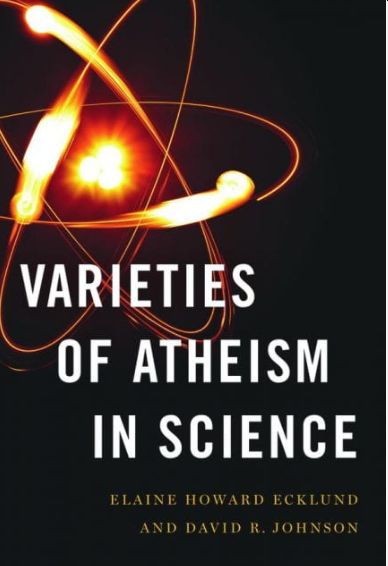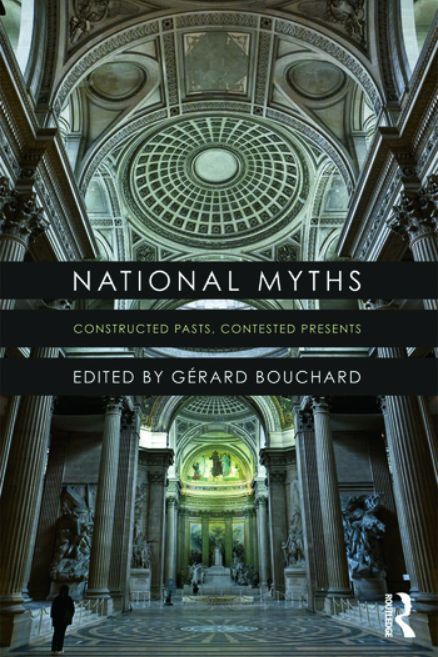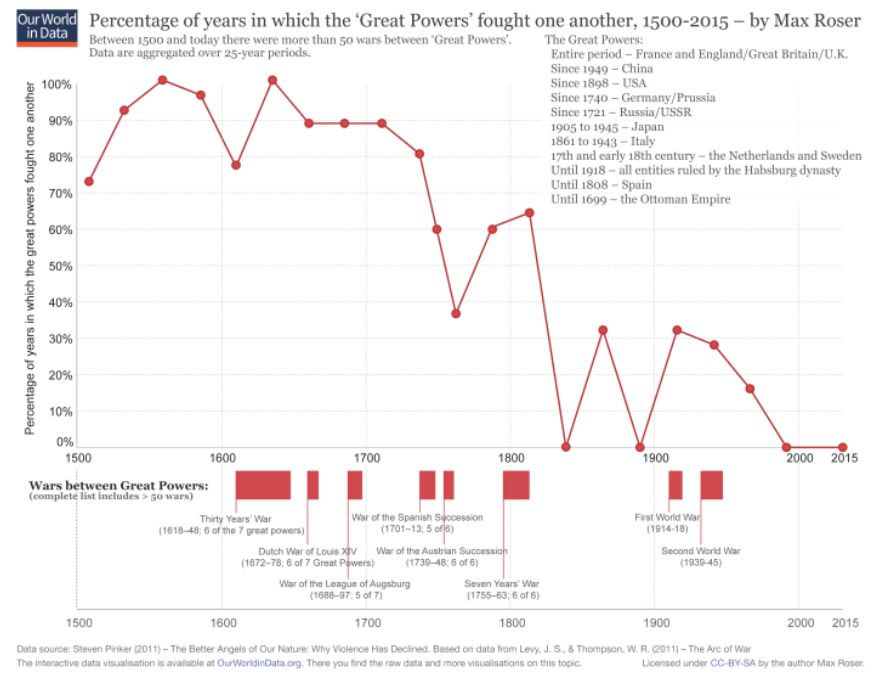By Eric Vandenbroeck and
co-workers
Rationality and progress
As we have seen in our article about bias and why it occurs
across various judgment domains. People in all demographic groups display it,
and it is exhibited even by expert reasoners, the highly educated, and the
intelligent. Studies have shown a tendency toward the narrow search for evidence,
biased evaluation of evidence, biased memory of outcomes, and biased evidence
generation.
But there is also
some rationality to the myside bias, coming from game theory where Dan M.
Kahan calls it expressive
rationality: reasoning is driven by the goal of being valued by one’s peer
group rather than attaining the most accurate understanding of the world.
People express opinions that advertise where their heart lies. As far as the
fate of the expresser in a social milieu is concerned, flaunting those loyalty
badges is anything but irrational. Voicing a local heresy, such as rejecting
gun control in a Democratic social circle or advocating it in a Republican one,
can mark you as a traitor, a quisling, someone who doesn’t get it, and condemn
you to social death. Indeed, the best identity-signaling beliefs are often the
most outlandish ones. Any fair-weather friend can say the world is round, but
only a blood brother would say the world is flat, willingly incurring ridicule by
outsiders.
Unfortunately, what’s
rational for each of us seeking acceptance in a clique is not the rationale for
all of us in a democracy seeking the best understanding of the world. Our
problem is that we are trapped in what Hugo Mercier calls a Tragedy
of the Rationality Commons.1
The reality and mythology mindset.
For example, Mercier
notes that holders of weird beliefs often don’t have the courage of their
convictions. Though millions of people endorsed the rumor that Hillary Clinton
ran a child sex trafficking ring out of the basement of the Comet Ping Pong
pizzeria in Washington (the Pizzagate conspiracy
theory, a predecessor of QAnon), virtually none took
steps commensurate with such an atrocity, such as calling the police. The
righteous response of one of them was to leave a one-star review on Google.
(“The pizza was incredibly undercooked. Suspicious professionally dressed men
by the bar area that looked like regulars kept staring at my son and other kids
in the place.”) It’s hardly the response most of us would have if we thought
that children were being raped in the basement. At least Edgar Welch, the man
who burst into the pizzeria with his gun blazing in a heroic attempt to rescue
the children, took his beliefs seriously. The millions of others must have
believed the rumor in a very different sense of “believe.”
Mercier here points
out that impassioned believers in vast
conspiracies, like the 9/11 Truthers and the chemtrail theorists, publish
their manifestos and hold their meetings in the open despite their belief in a
brutally compelling plot by an autocratic regime to suppress brave
truth-tellers like them. It’s not the strategy you see from dissidents in
repressive regimes like North Korea or Saudi Arabia. Mercier, invoking a
distinction made by Sperber, proposes that conspiracy theories and other weird
beliefs are reflective, the result of conscious cogitation and theorizing, rather
than intuitive, the convictions we feel in our bones. It’s a powerful
distinction, though we draw it a bit differently, closer to the contrast that
the social psychologist Robert Abelson.
People divide their
worlds into two zones. One consists of the physical objects around them, the
other people they deal with, the memory of their interactions, and the rules
and norms that regulate their lives. People have mostly accurate beliefs about
this zone, and they reason within it. They believe there’s a real-world and
that ideas about it are true or false. They have no choice: that’s the only way
to keep gas in the car, money in the bank, and the kids clothed and fed.
The other zone is the
world beyond immediate experience: the distant past, the unknowable future,
faraway peoples and places, small corridors of power, the microscopic, the
cosmic, the counterfactual, the metaphysical. People may entertain notions
about what happens in these zones, but they have no way of finding out, and
anyway, it makes no discernible difference to their lives. Beliefs in these
zones are narratives, which may be entertaining or inspiring, or morally
edifying. Whether they are literally “true” or “false” is the wrong question.
The function of these beliefs is to construct a social reality that binds the
tribe or sect and gives it a moral purpose. Call it the mythology
mindset.

Bertrand Russell
famously said, “It is
undesirable to believe a proposition when there is no ground whatsoever for
supposing it is true.” The key to understanding rampant irrationality is
recognizing that Russell’s statement is not a truism but a revolutionary
manifesto. There were no grounds for supposing that propositions about remote
worlds were true for most human history and prehistory. But beliefs about them
could be empowering or inspirational, and that made them desirable
enough.
Russell’s maxim is
the luxury of a technologically advanced society with science, history,
journalism, and their infrastructure of truth-seeking, including archival
records, digital datasets, high-tech instruments, and communities of editing,
fact-checking, and peer review. We children of the Enlightenment embrace
universal realism: we hold that all our beliefs should fall within the reality
mindset. We care about whether our creation story, our founding legends, our
theories of invisible nutrients and germs and forces, our conceptions of the
powerful, are true or false. We have the tools to get answers to these
questions, or at least to assign them warranted degrees of credence. We have a
technocratic state that should put these beliefs into practice.
It is not the natural
human way of believing. The human mind is adapted to understanding remote
spheres of existence through a mythology mindset, it’s not because we descended
from Pleistocene hunter-gatherers specifically, but because we lacked the Enlightenment ideal of universal realism.
Submitting one’s beliefs to the trials of reason and evidence is an unnatural
skill, like literacy and numeracy, and must be instilled and cultivated.
And for all the
conquests of the reality mindset, the mythology mindset still occupies swaths
of territory in the landscape of mainstream belief. The obvious example is
religion. More than two billion people believe that if one doesn’t accept Jesus
as one’s savior, one will be damned to eternal torment in hell. Fortunately,
they don’t take the next logical step and try to convert people to Christianity
at swordpoint for their good or torture heretics who
might lure others into damnation. Yet in past centuries, when Christian belief
fell into the reality zone, many Crusaders, Inquisitors, conquistadors, and
soldiers in the Wars of Religion treated their beliefs
as literally true. For that matter, though many people profess to believe
in an afterlife, they seem to be in no hurry to leave this vale of tears for
eternal bliss in paradise.

Thankfully, Western
religious belief is safely parked in the mythology zone, where many people are
protective of its sovereignty. In the mid-aughts, the “New Atheists,” Sam
Harris, Daniel Dennett, Christopher Hitchens, and Richard Dawkins, became
targets of vituperation not just from Bible-thumping evangelists but also
from mainstream intellectuals. They did not counter that God exists. They
implied that it is inappropriate, uncouth, or just not done to consider God’s
existence a matter of truth or falsity. Belief in God is an idea that falls
outside the sphere of testable reality.

Another zone of
mainstream unreality is the national myth. Wich as we
argued before, whereas the nationalist system was in full effect in Europe
throughout most of the nineteenth century, its’
success in other parts of the world came along at a later point. Whereby
today, most countries enshrine a founding narrative as part of their collective
consciousness. These were epics of heroes and gods, like the Iliad, the Aeneid,
Arthurian legends, and Wagnerian operas. More recently, they have been wars of
independence or anticolonial struggles. Common themes include:
The nation’s ancient
essence is defined by a language, culture, and homeland.
An extended slumber
and glorious awakening.
A long history of
victimization and oppression.
A generation of superhuman
liberators and founders.
Guardians of the
mythical heritage don’t feel a need to get to the bottom of what transpired.
They may resent the historians who place it in the reality zone and unearth its
shallow history, constructed identity, reciprocal provocations with the
neighbors, and founding fathers’ feet of clay. Still, another zone of
not-quite-true-not-quite-false belief is historical fiction and, as we have
shown in the case of Irish and Scottish Nationalists, fictionalized history.
On the other hand,
when the events come too close to the present, or the fictionalization rewrites
important facts, historians can sound an alarm, as when Oliver Stone brought an
assassination conspiracy theory to life in the 1991 movie JFK. In 2020, others objected
to the television series The Crown, a dramatized history of Queen Elizabeth
and her family, which took liberties with many depicted events. Most critics
and viewers had no problem with the sumptuously filmed falsehoods. Netflix
refused to post a warning that some of the scenes were fictitious (though they
did post a trigger warning
about bulimia).

Offering reasons why
rationality matters is a bit like blowing into your sails or lifting yourself
by your bootstraps: it cannot work unless you first accept the ground rule that
rationality is the way to decide what matters.
We all do accept the
primacy of reason, at least tacitly, as soon as we discuss this issue, or any
issue, rather than coercing assent by force. It’s now time to raise the stakes
and ask whether the conscious application of reason improves our lives and makes
the world a better place. Given that reality is governed by logic and physical
law, it ought to be. Do people suffer harm from their fallacies, and would
their lives go better if they recognized and thought their way out of them? Or
is a gut feeling a better guide to life decisions than cogitation, with its
risk of overthinking and rationalization?
One can ask the same
questions about the welfare of the world. Is progress a story of
problem-solving, driven by philosophers who diagnose ills and scientists and
policymakers who find remedies? Or is progression a story of struggle, with the
downtrodden rising up and overcoming their oppressors?
We detailed why to
distrust false dichotomies and
single-cause explanations, so the answers to these questions will not be
just one or the other. Are the fallacies and illusions we described above just
wrong solutions to complex math problems? Or can poor reasoning lead to
actual harm, implying that critical thinking could protect people from their
own worst cognitive instincts?
We discount the
future myopically, but it always arrives, minus the large rewards we sacrificed
for the quick high. We assess danger by availability and avoid safe planes for
dangerous cars we drive while texting. We misunderstand regression as the mean and
so pursue illusory explanations for successes and failures.
In dealing with
money, our blind spot for exponential growth makes us save too little for
retirement and borrow too much with our credit cards. Our failure to discount
post hoc sharpshooting, and our misplaced trust in experts over actuarial
formulas, lead us to invest inexpensively managed funds that underperform
simple indexes. Our difficulty with expected utility tempts us with insurance
and gambles that leave us worse off in the long run.
Our difficulty with
logic can lead us to overinterpret a positive test for the uncommon disease in
dealing with our health. We can be persuaded or dissuaded from surgery
depending on the words in which the risks are framed. Our intuitions about
essences lead us to reject lifesaving vaccines and embrace dangerous quackery.
Illusory correlations and confusion of causation lead us to accept worthless
diagnoses and treatments from physicians and psychotherapists. A failure to
weigh risks and rewards lulls us into taking foolish risks with our safety and
happiness.
In the legal arena,
probability blindness can lure judges and juries into miscarriages of justice
by vivid conjectures and post hoc probabilities.
A failure to appreciate the tradeoff between hits and false alarms leads them
to punish many innocents for convicting a few more of the guilty.
In many of these
cases, the professionals are as vulnerable to folly as their patients and
clients, showing that intelligence and expertise provide no immunity to
cognitive infections. The classic illusions have been demonstrated in medical
personnel, lawyers, investors, brokers, sportswriters, economists, and
meteorologists, all dealing with figures in their specialties.
These are some of the
reasons to believe that failures of rationality have consequences in the world.
Can the damage be quantified? The critical-thinking activist Tim Farley tried
to do that on his website and Twitter feed named after the frequently asked
question “What’s the
Harm?” Farley had no way to answer it precisely, of course. Still, he tried
to awaken people to the enormity of the damage wreaked by failures of critical
thinking by listing every authenticated case he could find. From 1970 through
2009, but mainly in the last decade in that range, he documented 368,379 people
killed, more than 300,000 injured, and $2.8 billion in economic damages from
blunders in critical thinking. They include people killing themselves or their
children by rejecting conventional medical treatments or using herbal,
homeopathic, holistic, and other quack cures; mass suicides by members of
apocalyptic cults; murders of witches, sorcerers, and the people they cursed;
guileless victims bilked out of their savings by psychics, astrologers, and other
charlatans; scofflaws and vigilantes arrested for acting on conspiratorial
delusions; and economic panics from superstitions and false rumors.
Yet as Farley would
be the first to note, not even thousands of anecdotes can prove that
surrendering to irrational biases leads to more harm than overcoming them. At
the very least, we need a comparison group, namely the effects of
reason-informed institutions such as medicine, science, and democratic
government.
We do have one study
of the effects of rational decision-making on life outcomes. The psychologists Wändi Bruine de Bruin, Andrew
Parker, and Baruch Fischhoff developed a measure of competence in reasoning and
decision making by collecting tests for some of the fallacies and biases that we discussed.
Not surprisingly,
people’s skill in avoiding fallacies was correlated with their intelligence,
though only partly. It was also correlated with their decision-making style,
the degree to which they said they approached problems reflectively and
constructively rather than impulsively and fatalistically. The trio developed a
kind of scale to measure life outcomes, a measure of people’s susceptibility to
mishaps large and small.
They
found that people’s reasoning skills did indeed predict their life
outcomes: the fewer fallacies in reasoning, the fewer debacles in life.
Correlation is not
causation. Reasoning competence is correlated with raw intelligence, and we
know that higher intelligence protects people from bad outcomes in life, such
as illness. But intelligence is not the same as rationality since being good at
computing means that a person will add the right things. Rationality also
requires reflectiveness, open-mindedness, and mastery of cognitive tools like
formal logic and mathematical probability. Bruine de
Bruin and her colleagues did the multiple
regression analyses and found that better reasoners suffered fewer bad
outcomes even when they held intelligence constant.
Socioeconomic status,
too, confounds one’s fortunes in life. Poverty is an obstacle course,
confronting people with the risks of unemployment, substance abuse, and other
hardships. But here, too, the regression analyses showed that better reasoners
had better life outcomes, holding socioeconomic status constant.
Rationality and progress
Though the
availability bias hides it from us, human progress is an empirical fact. When
we look beyond the headlines to the trend lines, we find that humanity overall
is healthier, wealthier, longer-lived, better fed, better educated, and safer
from war, murder, and accidents than in decades and centuries past. Beginning
in the second half of the nineteenth century, life expectancy at birth rose
and, according to available statistics, has continued
to do so.
The world has not yet
put an end to war, as the folk singers of the 1960s dreamed, but it has
dramatically reduced their
number and lethality:

More vigorous efforts
are needed to reduce the global homicide rate, but also that has been falling slowly.
In the end, it is
good to care about people’s virtue when considering them as friends, but not
when considering the ideas they voice. Ideas are true or false, consistent or
contradictory, conducive to human welfare or not, regardless of who thinks
them. The equality of sentient beings, grounded in the logical irrelevance of
the distinction between “me” and “you,” is an idea that people through the ages
rediscover, pass along, and extend to new living things, expanding the circle
of sympathy like dark moral energy.
Sound arguments,
enforcing consistency of our practices with our principles and with the goal of
human flourishing, cannot improve the world itself. But they have guided and
should guide movements for change. They make the difference between moral force
and brute force, between marches for justice and lynch mobs, between human
progress and breaking things. And it will be sound arguments, both to reveal
moral blights and discover feasible remedies, that we will need to ensure that
moral progress will continue, that the abominable practices of today will
become as incredible to our descendants as heretic burnings and slave auctions
are to us.
The power of
rationality to guide moral progress is a piece with its capacity to guide
material progress and wise choices in our lives. We can eke out of a pitiless
cosmos and be good to others by grasping equitable principles that transcend
our parochial experience despite our flawed nature. We are a species endowed
with an elementary faculty of reason, which has discovered formulas and
institutions that magnify its scope. They awaken us to ideas and expose us to
realities that confound our intuitions but are valid for all that.
1. Hugo Mercier,
Not born yesterday: The science of who we trust and what we believe. Princeton,
NJ: Princeton University Press, 2020, pp. 191–97.
For updates click homepage here